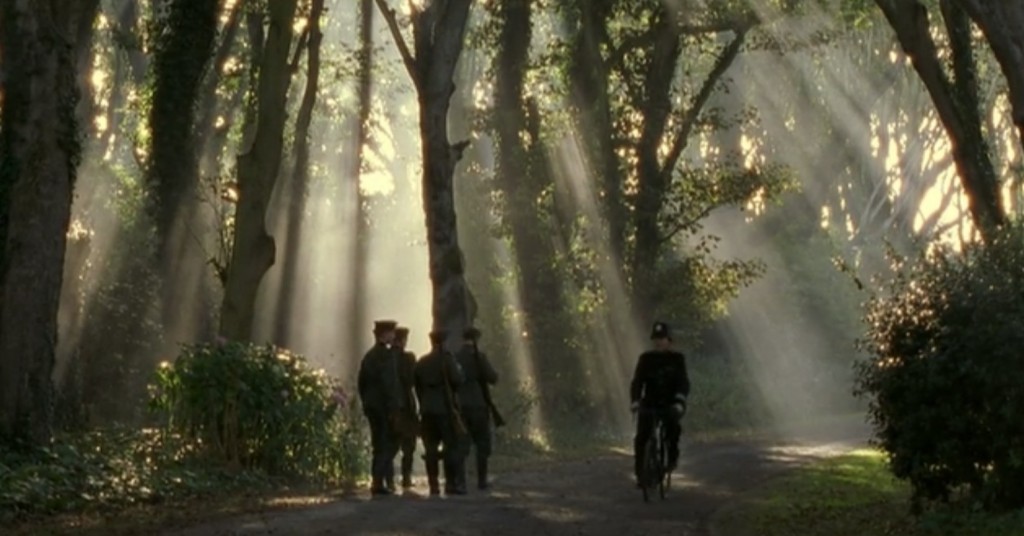Island at War
Redeeming the Time on Netflix

So far, this series, a fictional story set during the World War II occupation of the British Channel Islands, is just stunning on all levels: the performances are compelling, the art direction is gorgeous, and the light! It certainly seems divine, since it has that breakfast-in-an-Irish-cottage quality, where everything feels washed in cotton-filtered sunlight. If you add in the imminent arrival of the Wehrmact, and a kind of dotty population of tomato-growing English villagers, watching their small detachment of 300 British soldiers leaving their posts, it all adds up to beautiful and ominous. Many of these families made the decision to send their children back to England, so — amid the emerald splendor of the Channel Island farm country, you have the sense, in the first installment, of Eden being shut down and boarded up for a long Nazi winter.
And the premise makes for a story far more magnetic than even a well produced combat picture, because the occupying army just moves in, unopposed, wearing well tailored uniforms and sporting their Hessian heraldry. Philip Glenister plays a sinister Oberst Heinrich Baron Von Rheingarten, with a glassy intensity very far removed from his lovelorn country soldier, William Dobbin, in Vanity Fair. In a story focused on declared hostilities — a battle story — there’s the constant emotional release promised in the combat itself, but here the cloud of evil lords itself slowly and patiently over the surrendering residents of the fictional town of St. Gregory. You’re never quite sure when the storm will break.
The premise seems something like a disturbing metaphor for modern life — when no one knows what they’re living for, they don’t take any time defending it. Watching these characters, you get the feeling they are waking up out of a pleasant dream into a menacing reality, but they are a bit too polite to comprehend its full dimensions. They chide their Nazi captors for rude behavior, because you get the sense they haven’t quite gotten the sleep out of their eyes. One shopkeeper, grieving the loss of her husband to a senseless luftwaffe strafing, won’t sell to German soldiers. Her re-education is brutal and remorseless. Baron Von Rheingarten stands next to Senator James Dorr, one of the vanquished Island’s leaders; they watch German soldiers swimming on the beach and Von Rheingarten comments on the irony of their existence. They are enjoying the sun and the water now, but he could order half of them to kill each other at that very moment. Senator Dorr responds, “but you can’t know if they would obey your order.” The Baron is amused. Of course he knows what they would do.
This pairing of two cultures — a Teutonic mind-cult complete with black uniforms , and happy Anglo-agnostics who take pride in never getting too excited about anything — makes for an addicting study. One German soldier, trying to make friends with the English shop-girls, hints at some sort of heart, and in this display we see both the banality and the likelihood of evil, in the absence of a God strong enough to fight it. I know nothing about the producers of this story, but they make a case for the timeless truths–for courage, conviction, and honor — just by showing what life looks like when those virtues slumber.
I can’t speak for the whole series, as I’ve only watched the first two installments (out of six), but some of you know I’m a tad picky.
Well, this, to say the least, is very watchable– and I’m always happy to know as a filmmaker.
It can be done!



